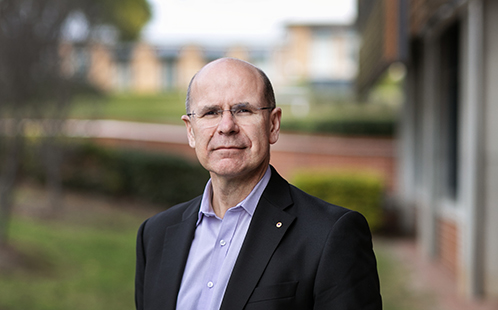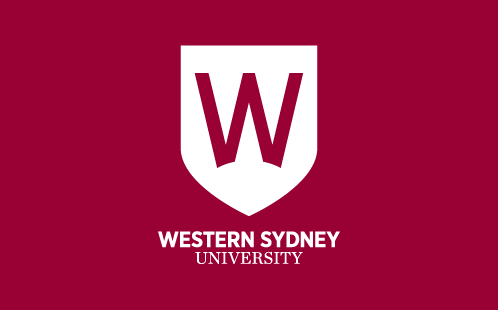Experts offer back to school tips

As the new school year approaches, Western Sydney University experts offer tips on nurturing a growth mindset for students, ensuring lunch safety, managing school costs, and supporting teachers in balancing their workload.
LUNCHBOXES AND FOOD SAFETY
Associate Professor Vincent Ho, School of Medicine
Associate Professor Vincent Ho is a practicing gastroenterologist and leads a Translational Gastroenterology Research program at the School of Medicine, Western Sydney University focusing on basic science and clinical research in the gut. He has a strong passion in education of the science of the gut to health discipline audiences as well as the general public. Vincent is the gastroenterology education content convenor for the School of Medicine, has written extensively for The Conversation (over 9.5 million views) and has been interviewed on radio, television and newspapers.
“Frozen juice poppers can be used as freezer packs and by lunchtime should be thawed and ready to drink. Perishable food should never be packed in a paper bag, especially in the summer heat. An insulated lunchbox should be used for packing perishable foods. Insulated containers such as thermos flasks should be used to store hot soups and stews.”
Dr Ho says if food poisoning does occur, oral rehydration is the cornerstone of treatment.
“A rehydrating solution of sugar, salt and water can be purchased from most pharmacists and drinking this is the first step to recovery. A bland diet for a short period of time can be helpful in recovery. For severe symptoms or for any concerns about your child’s recovery arrange a prompt review by your general practitioner.”
ROUTINES AND LEARNING BEHAVIOURS
Associate Professor Kay Carroll, School of Education
Deputy Dean of Education, Western Sydney University. Current research and teaching interests are Curriculum and Pedagogy. Dr Carroll has contributed to external accreditation for Australian Institute for Teaching & School Leadership (AITSL), and has taught across primary and secondary programs.
“Returning back to school or starting Kindergarten or High School is an important moment for all families. As parents and caregivers we often have high expectations and want to establish good learning behaviours and routines. So it is really important to share with your child or teenager how morning and after school structures will work and fit in around family, sporting and other commitments. Think of this like getting the lunch box prepared. Be organised, have school supplies ready and share the tasks of organising uniforms, equipment and timetables. Use a growth mindset with your child or teenager and encourage them to try and enjoy each challenge and minute of school, and remind them that failure is part of the learning experience.”
FAMILY BUDGETS
Associate Professor Michelle Cull, School of Business
Associate Professor Michelle Cull is a leading academic in financial planning, with her research focusing on financial planning education, ethics in financial advice and financial inclusion. Michelle is co-editor of the Financial Planning Research Journal, Executive Vice President of the Academy of Financial Services in the United States, and member of Australia’s Financial Planning Education Council. Michelle led the development of the Personal Finance Basics microcredential and WalletSmart App, and co-founded the Western Sydney University Tax Clinic.
“The beginning of the school year provides an ideal opportunity to revisit the family budget. A family budget can be a powerful tool in managing cost-of-living pressures by prioritising essentials, spending smart and reducing financial stress. It can also encourage family collaboration by opening the communication channels around household finances, allowing the whole family to contribute ideas about saving and spending. Involving children in the budgeting process can also help them to understand the value of money and learn life-long lessons around managing finances and making informed decisions.”
“For example, your children could help prepare a list of back-to-school items and you could teach them to compare prices, look for discounts and prioritise needs over wants. Recognise and celebrate their efforts by ticking things off the list or rewarding small wins using an age-appropriate approach. For older children, you could give them a set amount to spend on back-to-school items and encourage them to shop smart by allowing them to put any surplus funds towards a savings goal.”
MANAGING TEACHER WORKLOADS
Associate Professor Katrina Barker, School of Education
Associate Professor Katrina Barker works in the field of Educational Psychology at the Centre for Educational Research in the School of Education and is a multi-award-winning educator. She fuses research and teaching to transform curriculum, assessments, and pedagogical approaches with the goal to inspire future teachers and improve their work.
“As the new school year approaches, teachers, particularly those beginning their careers, can take proactive steps to manage their workload effectively by focusing on three core strategies: prioritising, collaborating, and setting boundaries. “
“Prioritising begins with creating a clear task list, identifying high-priority tasks, and breaking them into manageable steps with realistic timeframes. To avoid feeling overwhelmed, tackle one task at a time and celebrate your progress as you complete each step. This practice not only sustains motivation but also fosters a sense of accomplishment.
“Collaborating with colleagues can reduce workload, drawing upon shared resources, gaining insights, and refining your teaching practices to be more efficient are some of the benefits. Be confident in seeking ideas and materials from your peers—teaching is a supportive and collaborative profession, and most colleagues are more than willing to help. Remember to reciprocate by sharing innovative ideas and strategies you’ve learned during your university studies and professional placements, contributing to a culture of mutual growth and support.
“Setting boundaries is essential for maintaining a sustainable balance between work responsibilities and personal wellbeing. Schedule downtime as a non-negotiable task on your list, ensuring you allocate time for rest, hobbies, and social activities. Planning your workload with clear timeframes also helps you respect these boundaries and avoid burnout.
“By adopting these three core strategies, new teachers can establish a solid foundation for a productive, rewarding, and sustainable year ahead, building confidence and fostering a positive start to their teaching careers.”
Latest News

ABC RN transcript: Vice-Chancellor Professor George Williams discusses higher education sector, student support, and the impact of AI
The following is a transcript of an interview that aired on ABC Radio National Saturday Extra between presenter, Nick Bryant and Vice-Chancellor, Distinguished Professor George Williams AO.

Western Sydney University are the number one Australian solar car team at the 2025 Bridgestone World Solar Challenge
Western Sydney Solar Car team has crossed the finish line placing preliminarily sixth in the world overall, and the number one Australian team in the world’s most prestigious solar car challenge.

Western Sydney University Statement on Cyber Incidents
Western Sydney University has issued an update to its community following confirmation that previously stolen personal information was published online, including on the dark web.
Mobile options:

